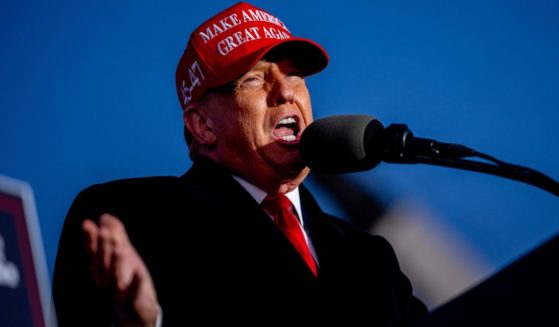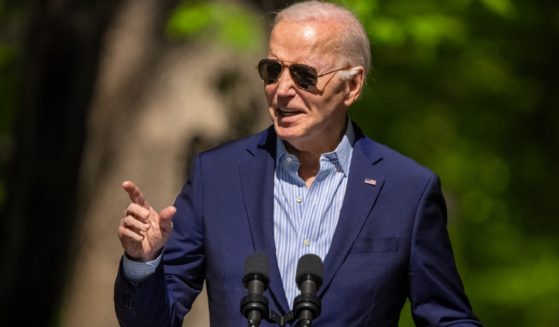The Latest: Senators urge pharma CEOs to rein in lobbyists
WASHINGTON (AP) — The Latest on top pharmaceutical executives testifying before Senate lawmakers on rising drug prices (all times local):
1:30
Senators are urging top pharmaceutical executives to help Congress take action against the industry’s worst actors who hike prices on once-cheap drugs.
Democrat Sen. Sheldon Whitehouse of Rhode Island says the drug industry’s reputation has been tarnished by a handful of companies that monopolize decades-old drugs and hike their prices.
Whitehouse told pharmaceutical executives: “turn off your lawyers and lobbyists when we try to solve that problem.”
CEOs from seven of the largest drugmakers, including Pfizer, Merck and AbbVie, are testifying before the Senate Finance Committee. The hearing marks the first time the industry’s top CEOs have been called to account for how they price their medicines.
___
12:40 p.m.
Seven top pharmaceutical executives are telling lawmakers they do not withhold their drugs from potential competitors to stop them from developing cheaper versions.
Generic drugmakers can only develop lower-cost versions of brand-name medicines if they obtain samples of the original drugs. Some drugmakers have blocked competition for their medications by preventing would-be competitors from obtaining samples of the drugs.
But the executives from Pfizer, Merck, Sanofi and four other companies said Tuesday at a congressional hearing on drug prices that they do not use the tactic. Several executives also say they support a bill in Congress that would ban the practice.
Members of the Senate Finance Committee say they plan to overhaul industry practices to lower drug prices for U.S. patients.
___
12:05 p.m.
Pharmaceutical industry executives testifying before Congress say quick fixes to lower drug prices could jeopardize future medical breakthroughs.
CEOs for Pfizer, Merck, AbbVie and four other drugmakers answered questions before the Senate Finance Committee on Tuesday. It’s the first time top industry officials have been called to account for how they price their medicines.
But Merck CEO Kenneth Frazier warns that “outrageous solutions” to drug costs could sacrifice industry innovation. It’s a longstanding industry argument used to defend prices on everything from high-tech cancer drugs to diabetes medicines.
Sanofi CEO Olivier Brandicourt says using government “price controls” would not be enough to make medicines affordable for patients.
Pharmaceutical companies often launch their drugs with high initial prices, which usually increase every year. Drugmakers can generally charge as much as the market will bear because the U.S. government doesn’t regulate medicine prices.
President Donald Trump and Democrats have promised to bring prices down.
___
11:20 a.m.
A top Republican senator is warning pharmaceutical executives to give open, honest answers to congressional questions about rising drug prices.
Iowa Sen. Charles Grassley on Tuesday opened a high-stakes hearing in which CEOs from seven major pharmaceutical companies will face pointed questions about how they price their medicines. Grassley chairs the Senate Finance Committee and says lawmakers won’t ignore industry tactics used to block lower-cost drugs and keep prices high.
Ranking Democrat Sen. Ron Wyden of Oregon says the pharmaceutical industry treats patients like “unlocked ATMs full of cash to be extracted.”
The hearing marks the first time lawmakers have called top industry executives to account for rising prices that are squeezing Americans.
President Donald Trump and Democrats have promised to bring prices down. Drug prices could provide a rare bipartisan issue on which Congress and the White House could collaborate on legislation this year.
The CEOs say prices reflect investment in research and development.
___
10:15 a.m.
The CEOs of seven major pharmaceutical companies are facing a hostile grilling from senators over high prescription drug prices that are a drain Medicare and Medicaid and a burden to millions of Americans.
The companies have collected tens of billions of dollars from government programs in recent years for brand-name medications to treat everything from high cholesterol to rheumatoid arthritis, cancer to HIV infection. List prices for top drugs keep rising.
The pharmaceutical industry is one of the most powerful lobbies in Washington, but Tuesday’s Finance Committee hearing marks a change as lawmakers and President Donald Trump appear to be moving toward curbing costs.
Committee Chairman Charles Grassley of Iowa says Congress wants answers on why prices are so high.
The CEOs say prices reflect investment in research and development.
The Western Journal has not reviewed this Associated Press story prior to publication. Therefore, it may contain editorial bias or may in some other way not meet our normal editorial standards. It is provided to our readers as a service from The Western Journal.
Truth and Accuracy
We are committed to truth and accuracy in all of our journalism. Read our editorial standards.












